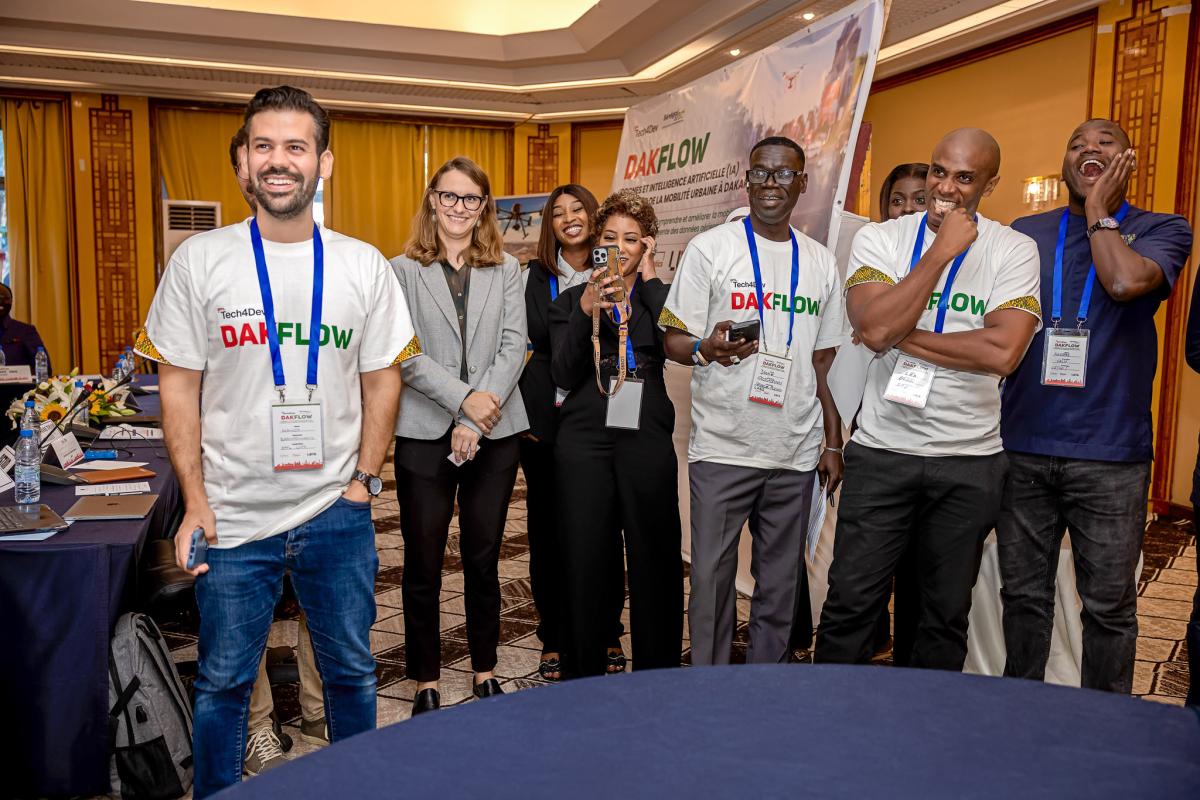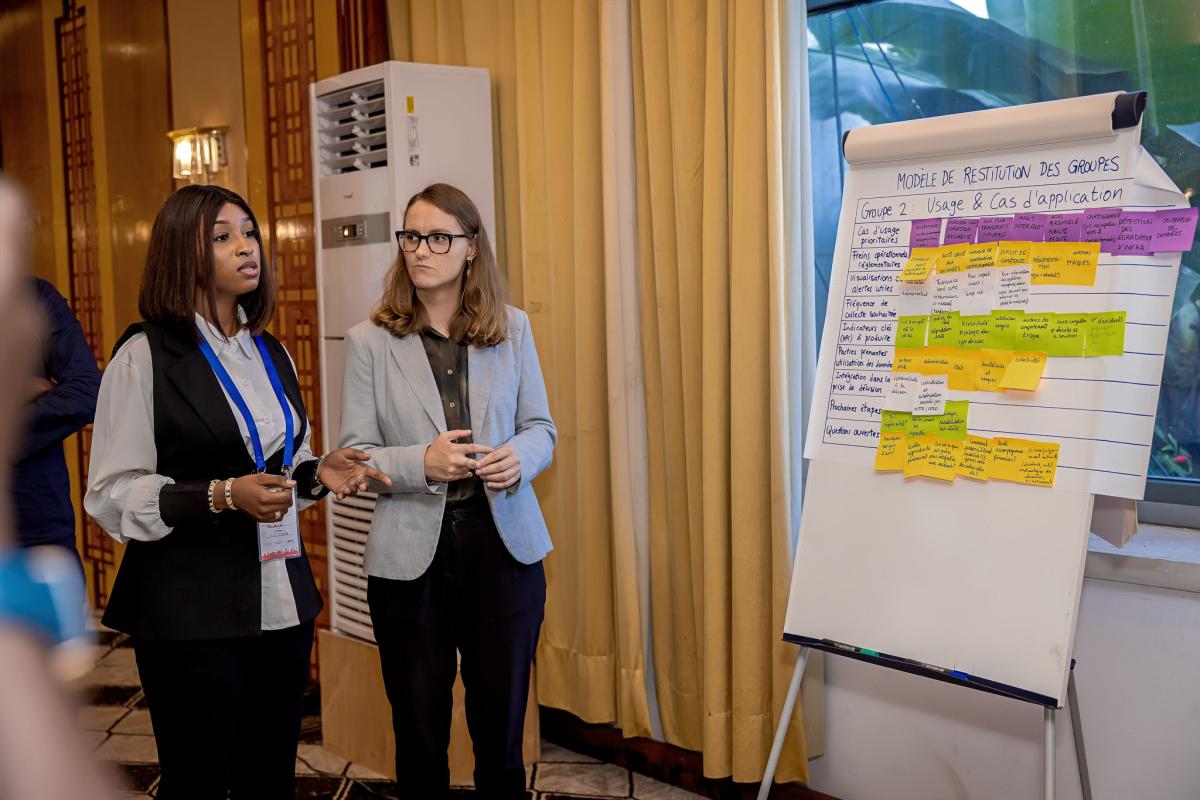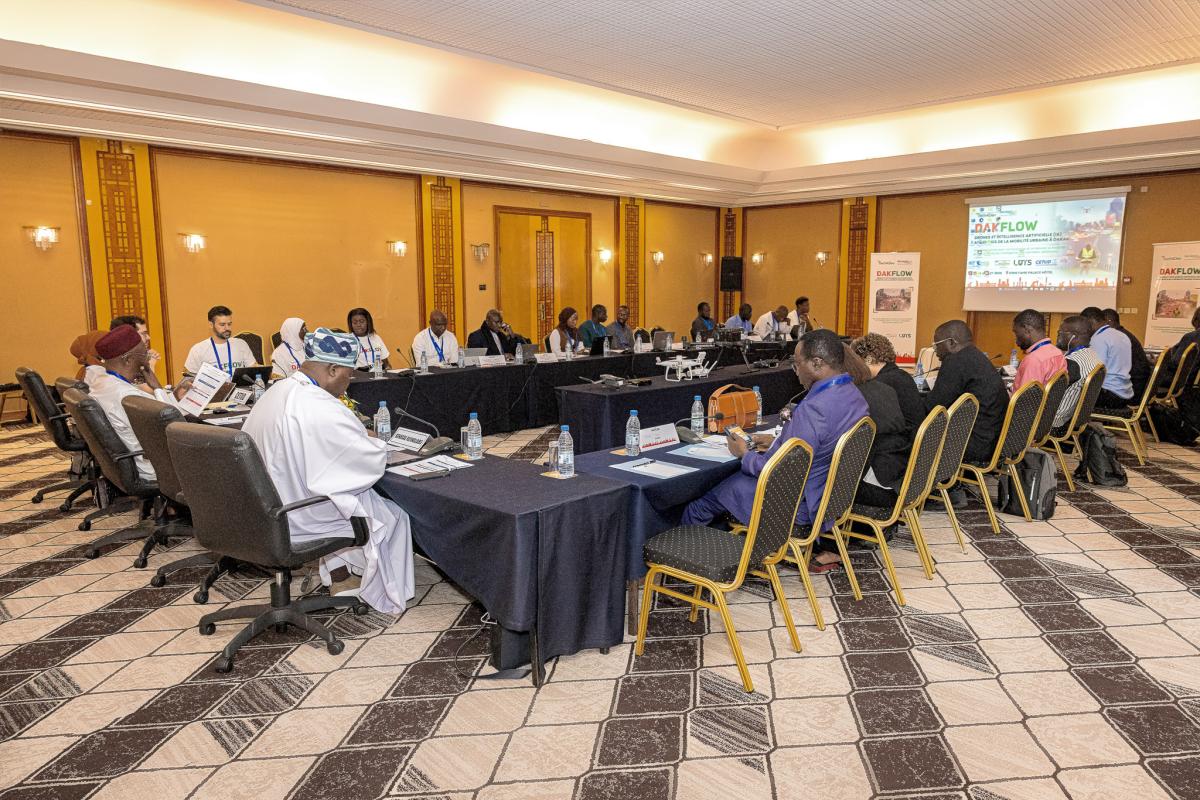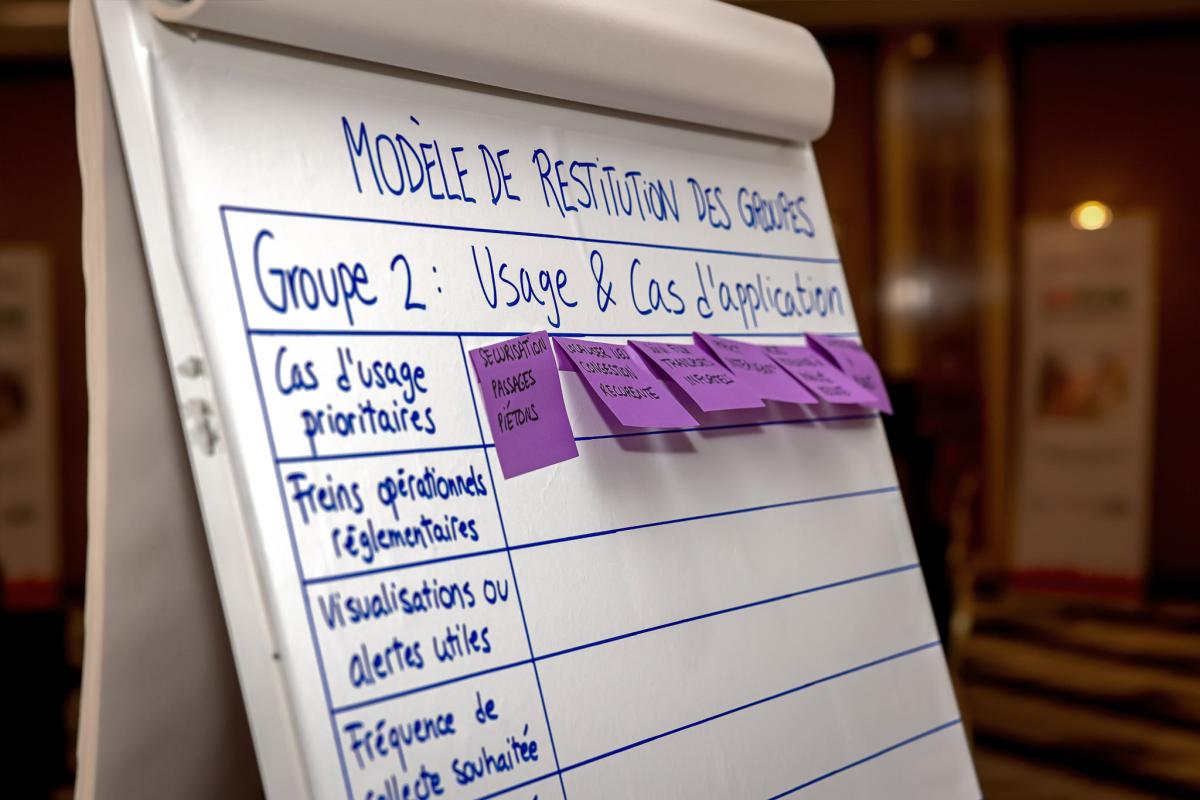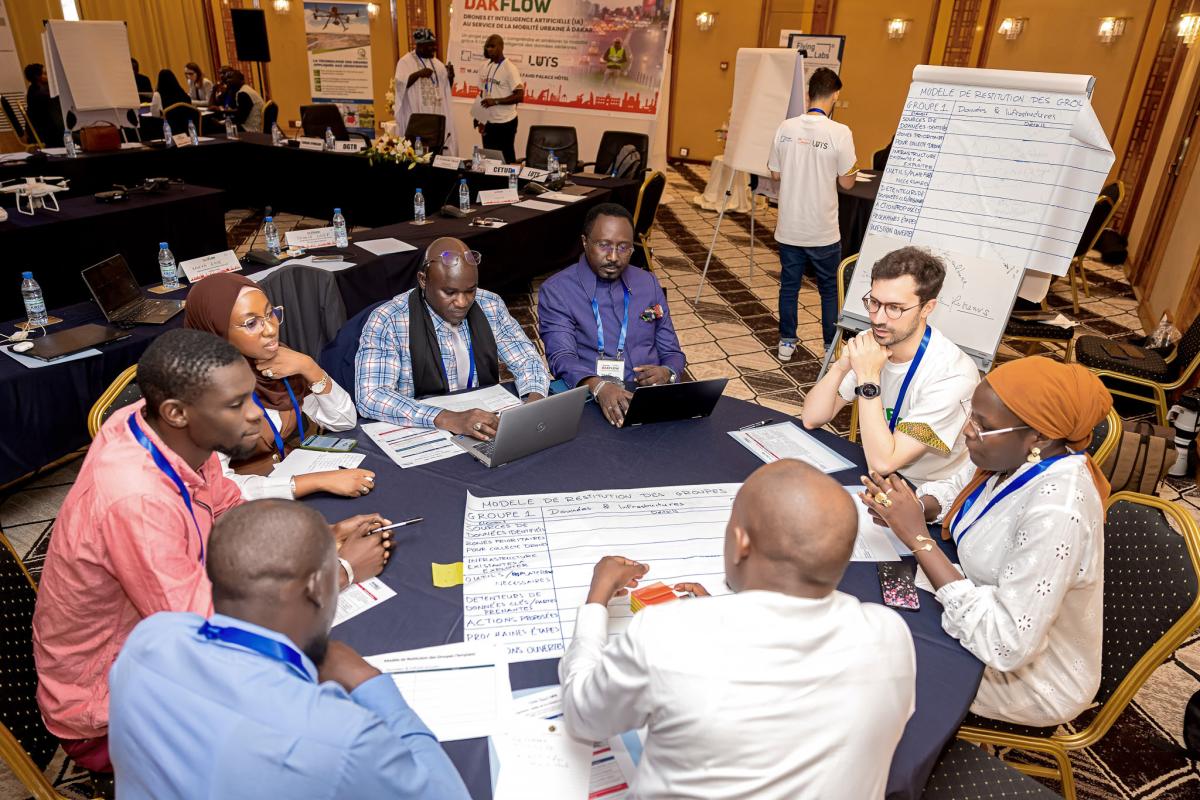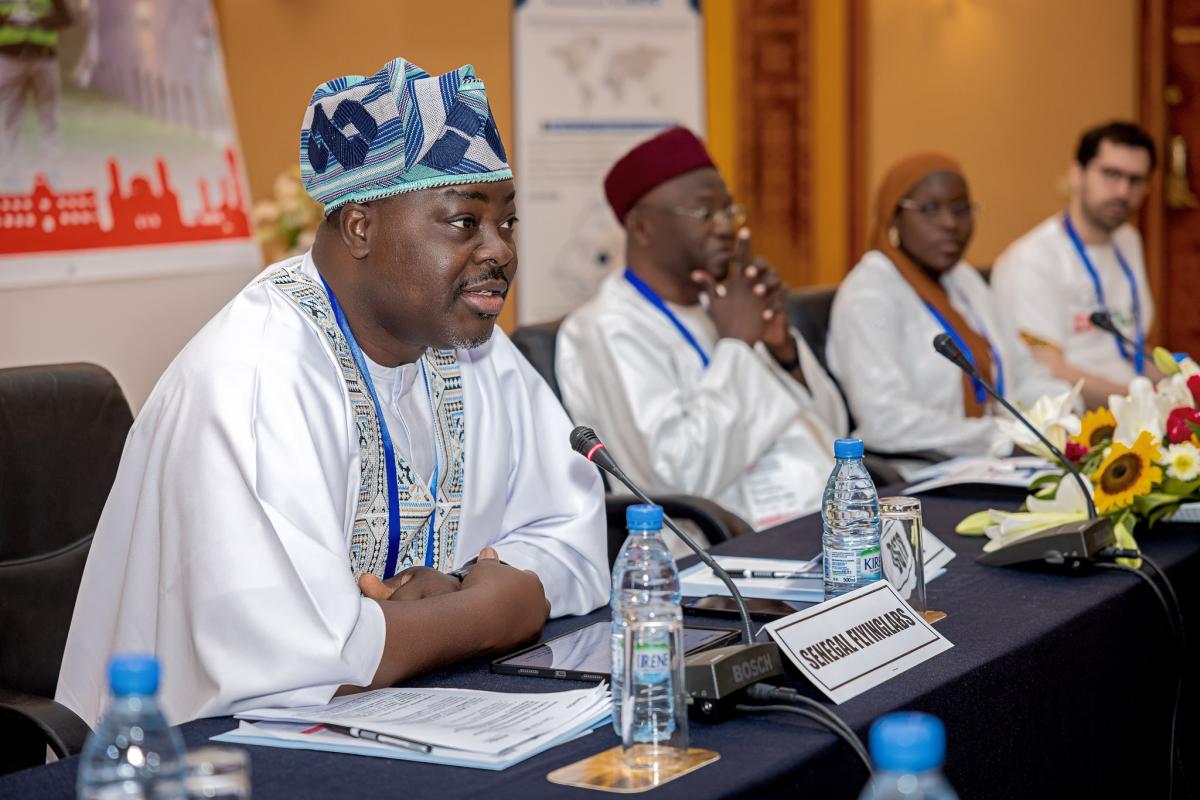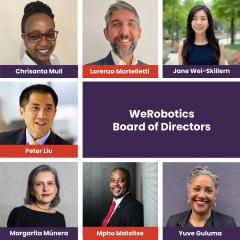
DAKFLOW: A Collaborative Path Toward Smarter Mobility in Dakar
August 1st, 2025
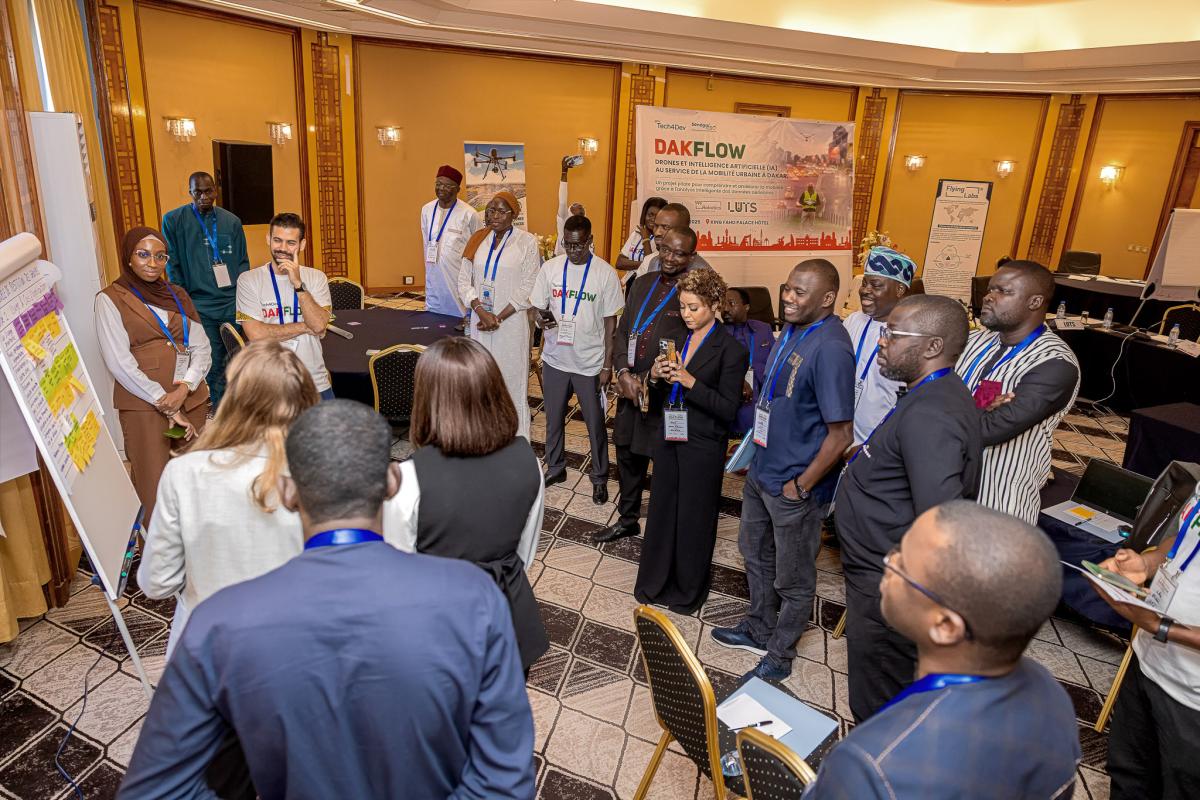
When technology, local talent, and data come together, an entire urban ecosystem can start to breathe again.
— Tiamiyou RADJI, Director, Senegal Flying Labs
On 16th July 2025, a diverse group of stakeholders gathered at the King Fahd Palace Hotel in Dakar for a co-creation workshop that marked the most important part of the exploration phase of “DAKFLOW”, a collaborative research project between Senegal Flying Labs, the Laboratory of Urban Transport Systems (LUTS) of EPFL (École Polytechnique Fédérale de Lausanne), and WeRobotics, with funding from the EPFL Tech4Dev Fund. The main goal of the workshop was to create an open space for ideation and learning with a wide group of stakeholders.
The project’s name points to its purpose. DAKFLOW is a collaborative Research and Development initiative that seeks to use drone imagery, geospatial data, and artificial intelligence to equip local stakeholders and policymakers with practical tools to better understand and manage how people and vehicles move through the city.
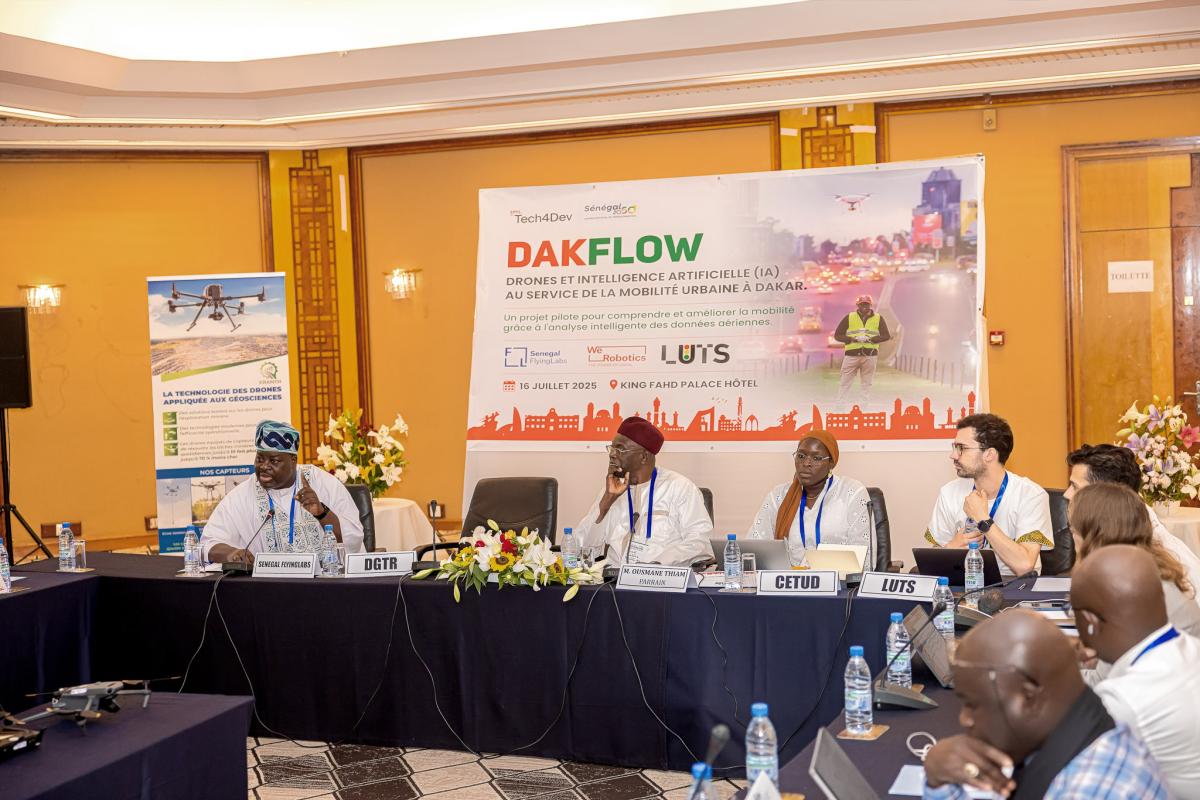
Like many fast-growing cities in the Global South, Dakar faces mounting mobility challenges: traffic congestion, informal transport systems, and a shortage of reliable, real-time data to inform traffic planning decisions. Fortunately, our efforts to change this do not start from scratch. DAKFLOW traces its roots back to a 2022 pilot project in Nairobi, Kenya. There, Kenya Flying Labs, EPFL LUTS, and WeRobotics teamed up for a first proof of concept (POC) on how drone imagery and AI could support smarter urban planning. The Nairobi POC allowed for important learnings for each and between all the project partners, paving the way for strong future collaborations.
Now, Dakar takes the baton, ready to reimagine the future of how a city flows.
During the co-creation workshop key stakeholders from across sectors worked with the DAKFLOW team to shape the project’s direction. Discussions centered around examining Dakar’s mobility landscape, communicating the project’s goals and methodology, gathering insights into local needs and priorities, and creating a stakeholder map to identify roles, relationships, and potential for collaboration.
The DAKFLOW project is currently in a four-month Exploration Phase (June–September 2025), made possible through a grant from the Tech4Dev fund. Awarded in April 2025, the grant was the result of a collaborative proposal submitted earlier in the year by the three project co-leads. The co-creation workshop thus marked a key milestone in a broader, multi-phase initiative intended to give space to local voices, map out needs, and build the foundation for long-term collaboration to transform urban mobility in Dakar.
The Exploration Phase is all about listening before acting. Its primary purpose is to understand Dakar’s mobility challenges from the ground up by building strong partnerships, deepening community involvement, assessing the feasibility of done-based traffic monitoring, and defining data collection and analysis parameters. The insights gained during this Exploration Phase will shape the proposal for the full DAKFLOW project.
We extend our heartfelt thanks to all the stakeholders who generously shared their knowledge, insights, and ideas during the co-creation workshop. This includes: CETUD, Dakar Dem Dikk, ONAS, ANASIM, ANASER, SENTER, and Mairie de Dakar (DST). Their contributions have been invaluable in shaping the vision of DAKFLOW.
The workshop received coverage in the Senegalese media. For a deeper look into the conversations and collaboration that took place, we invite you to read this newspaper article. And discover more insights from the workshop from Senegal Flying Labs Director Tiamiyou RADJI here.
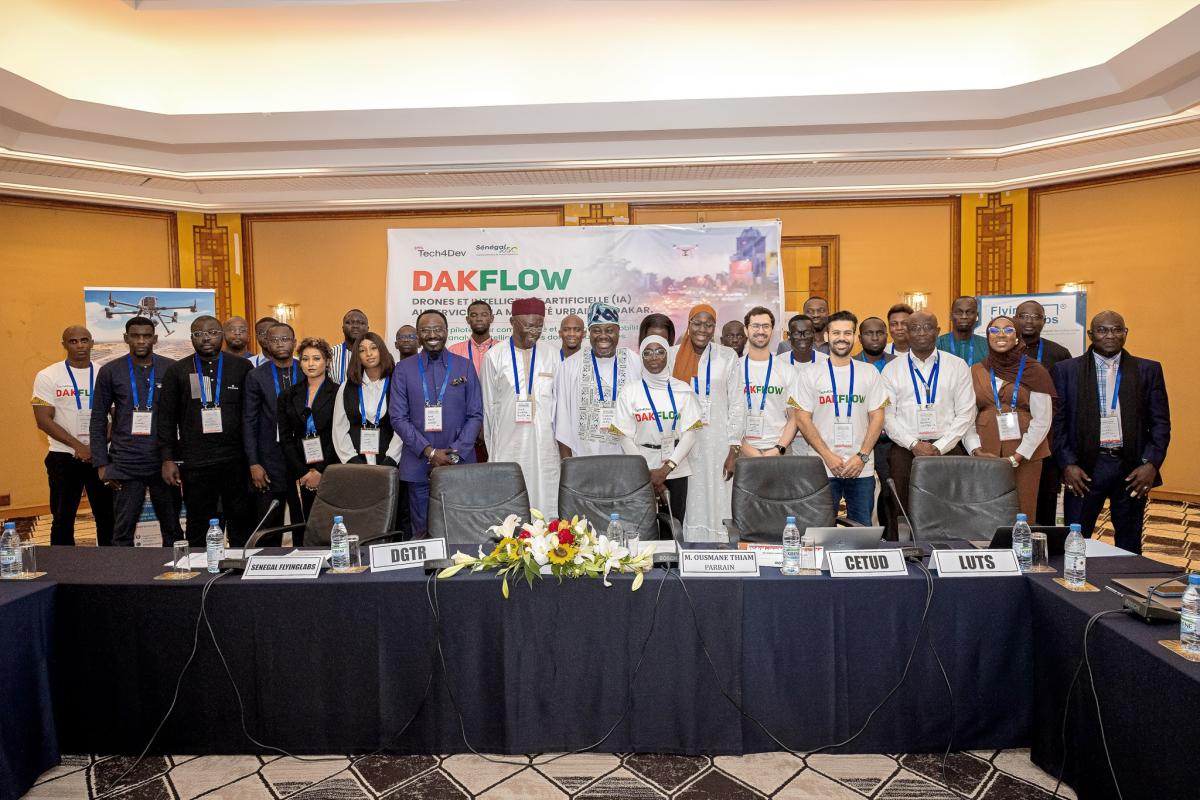
Recent Articles


